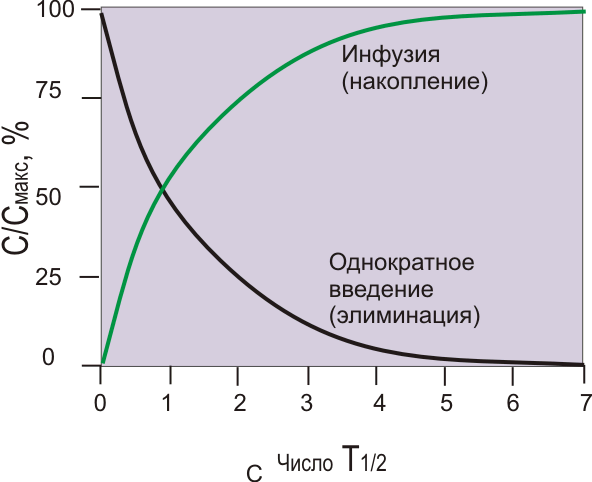Множественная лекарственная устойчивость: литература
Beck WT, Grogan ТМ, Willman CL, et al: Methods to detect P-glycoprotein-associated multidrug resistance in patients' tumors: Consensus recommendations. Cancer Res 56:3010, 1996. Workshop performed by the leaders in the field of human MDR research that reviews and contrasts the various methodologies of ascertaining P-glycoprotein levels and their respective importance in human tumor samples.
Bergman PJ, Ogilvie GK: Drug resistance and cancer therapy. Compend Contin Educ Pract Vet (Small Anim) 17:549, 1995. Concise and general overview of the various mechanisms of neoplastic drug resistance and how such resistance impacts the treatment of cancer. Recommendations are made for the best way of treating veterinary cancer patients in light of these resistance mechanisms.
Bergman PJ, Ogilvie GK, Powers BE: Monoclonal antibody C219 immunohistochemistry against P-glycoprotein: Sequential analysis and predictive ability in dogs with lymphoma. J Vet Intern Med 10:354, 1996. Immunohistochemical assessment of P-glycoprotein in 58 dogs with lymphoma. Levels of Pgp expression at the start of therapy, relapse, and necropsy were analyzed in relationship to various clinical end points, such as remission time, survival, and time from relapse to death.
Bergman PJ, Harris D: Radioresistance, chemoresistance, and apoptosis resistance: The past, present, and future. Vet Clin North Am Small Anim Pract 27:47, 1997. Concise review of resistance mechanisms for radiation and chemotherapy, with a review of the relationship of programmed cell death (apoptosis) resistance as a significant mechanism of combined radiation- chemotherapy resistance.
Broxterman HJ, Giaccone G, Lankelma J: Multidrug resistance proteins and other transport-related resistance to natural product agents. Curr Opin Oncol 7:532, 1995. Excellent review of current understanding of MDR in relation to the numerous natural-product chemotherapies in clinical use today.
Ford JM: Modulators of multidrug resistance. Hematol Oncol Clin North Am 9:337, 1995. Examination of the various clinical and preclinical MDR modulators available.
Giaccone G, Pinedo HM: Drug resistance. The Oncologist 1:82,1996. Excellent clinically relevant review of the myriad of mechanisms of drug resistance in cancer cells.
Goldstein LJ: Clinical reversal of drug resistance. Curr Probl Cancer 19:65, 1995. Review article covering the problems and difficulties encountered with MDR reversal strategies to date. Abo concisely reviews the cancers for which effective MDR reversal has been realized.
Кос ОМ, Allay JA, Lee K, et al: Transfer of drug resistance genes into hematopoietic progenitors to improve chemotherapy tolerance. Semin Oncol 23:46, 1996. Report on the use of infecting patients bone marrow cells with MDR genes to improve the bone marrow's ability to handle higher dose chemotherapy in hopes of increasingthe cure rates for various human malignancies.
Lee JJ, Hughes CS, Fine RL, et al: P-glycoprotein expression in canine lymphoma. Cancer 77:1892, 1996. Immunohistochemical evaluation of P-gjlycoprotein in dogs with lymphoma with comparison to clinical end points.
Moore AS, Leveille CR, Reimann KA, et al: The expression of P-glycoprotein in canine lymphoma and its association with multidrug resistance. Cancer Invest 13:475, 1995. Report on the use of Western blotting for the assessment of P-glycoprotein expression in dogs with lymphoma in comparison to response rates and times.
Pastan I, Gottesman M: Multiple-drug resistance in human cancer. N Engl J Med 316:1388, 1987. Excellent older review of the MDR literature with special emphasis on the normal function, biochemistry, and potential clinical significance of P-glycoprotein in various human malignancies.
Roninson IB: The role of the MDR1 (P-glycoprotein) gene in multidrug resistance in vitro and in vivo. Biochem Pharmacol 43:95, 1992. Review article particularly emphasizing the experimental research /Mings related to P-glycoprotein-associated multidrug resistance.
Thompson CB: Apoptosis in the pafhogenesis and treatment of disease. Science 267:1456, 1995. Concise review of the importance of apoptosis (programmed cell death) as a mechanism of cellular homeostasis to organisms ranging from nematodes to humans. Also reviews apoptosis in relationship to a variety of diseases, including cancer, neurodegenerative disorders, human immunodeficiency virus (HIV) infection, and other diseases related to apoptotic dysregulation.
